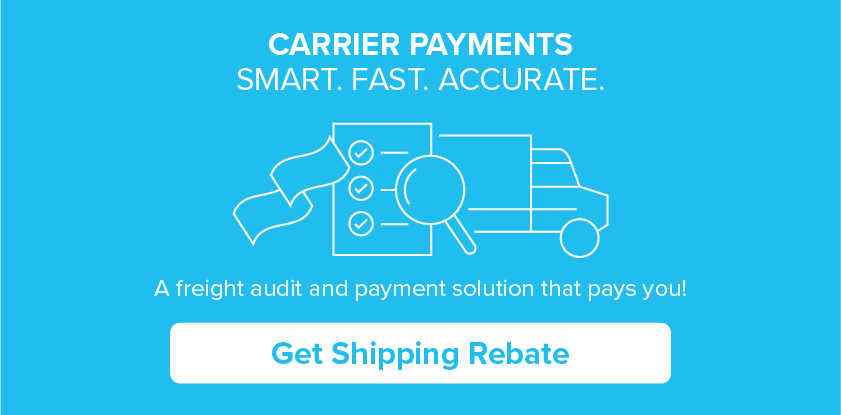Land, air, sea—the shipping networks sprawled across the world are what make it go round. As a business leader with cargo of your own, you’ll spend more time than the average person contemplating freight shipping logistics and rates.
These rates can pack a punch—especially if you’re unfamiliar with the freight logistics territory. Fortunately, you can often find wiggle room through negotiation.
Freight rate negotiation is vital for logistics and supply chain management, significantly impacting the contracts you secure. A strong contract, potentially facilitated through a freight broker, can lead to substantial savings and enhance your business's reach and effectiveness.
So, how do you get one? By understanding how to negotiate freight rates.
Mastering the Art of Freight Rate Negotiation
Negotiation is all about finding a compromise. What do you want? How can the other party meet your expectations? What do they get in return?
The Critical Role of Negotiation in Logistics Cost Management
Negotiation directly impacts your logistics cost management. A good contract can save you money and grant you:
- Reduced shipping costs
- Improved supplier relationships
- Experience for future negotiations
Oftentimes, the stronger your negotiation skills, the better your contract. But negotiating freight costs is no easy feat. So how can you prepare?
Preparing for Carrier Contract Negotiation: Know Your Needs
Always go into shipping carrier negotiations with a goal in mind. Do you want to reduce your freight costs? By how much? What area is your focal point for cost reduction?
Assessing Shipping Volume, Frequency, and Freight Class
How much do you ship, how often will you send shipments, and for LTL freight, what freight class are you shipping? You need to know these elements before even thinking about how to negotiate freight rates.
The first two are a matter of time and familiarizing yourself with your business as it grows. The National Motor Freight Traffic Association categorizes commodities by size, amount, weight, and material. You can look at the listed classifications to determine your freight class.
After you have this information, use it to leverage your needs against a carrier’s capabilities and find the perfect fit.
The Importance of Understanding Your Shipping Profile
To help gain a better understanding of what you need out of your freight carrier, build yourself a shipping profile. Determine:
- The type of goods you sell
- Your preferred transportation routes
- Any special handling requirements (i.e. if your products use lithium batteries)
If you lack a shipping profile that takes these factors into consideration, you’ll struggle to negotiate your contracts. After all, a carrier can’t meet you in the middle if they don’t know where you’re starting from.
Conducting Market Research: Empower Your Negotiations
Once you have your profile intact, it’s time for market research. Knowing what rates are “typical” is the best way to ensure you receive fair or generous deals.
Benchmarking Against Industry Standards
Benchmarking helps you strengthen your negotiating position by giving you a point of comparison against industry standards. You can also use it to identify areas of improvement so you’ll know exactly where your carrier can add value.
As you develop your freight rate negotiation strategy, it's crucial to stay ahead of trends and market shifts. For a deeper understanding of where rates might be headed, be sure to check out our 2024 Freight Rate Forecast, which offers valuable insights into future pricing dynamics.
Strategies for Effective Freight Negotiation
You know your benchmarks, you’ve done your market research, and now it’s time to start negotiating a contract.
Building Strong, Long-term Relationships with Carriers
Your carrier is a major part of your business backbone. If you forge a lasting relationship and make a showing as a good client, you may enjoy extra benefits like lower rates and higher-quality service.
The Power of Volume Commitments in Securing Better Rates
A freight volume commitment is a great way to build strong relationships with carriers and get the best freight contract rates. This contract clause ensures that you’ll ship a minimum amount of product with a freight carrier. Freight forwarders and carriers typically give better rates and more favorable terms to higher or consistent volume commitments, since you’re providing them with consistent work.
Flexibility and Open Communication as Tools for Negotiation
When negotiating, prioritize flexibility and open communication. After all, negotiating is a two-way street: the best negotiations are ones that both sides benefit from.
When you’re in contract negotiations, communicate promptly and clearly. Resolve any issues that emerge right away. It’s easier to create a solid contract than to go in and fix a weak one.
Leveraging Technology in Freight Negotiations
When learning how to negotiate freight rates, don’t overlook technology. The information you can glean from shipping data analytics is invaluable when working out your contract.
How Data Analytics and Logistics Platforms Can Provide an Edge
Data analytic tools and logistics platforms can provide insight on:
- Shipping patterns
- Options for saving costs
- Carrier performance
Having this information on hand puts you in a strong position in negotiations. You’ll know how much money competitors can save you, the performance of the carriers you’re questioning, and what you can expect from shipping with them before you even start the conversation.
Using Technology for Better Decision-Making
With access to real-time data and predictive AI analytics, you can unlock the insights essential to smart decision-making. With current and predictive data on your side, you can think on your feet, bolster your instinct with factual evidence, and save tons of time and money.
Enhancing Your Freight Rate Negotiation Skills with Lojistic
With this knowledge under your belt, you’re ready to tackle your next contract negotiation.
Effective Strategies and the Path Forward
Preparation, market research, and a smart use of technology serve as the foundation for contract negotiation. Thanks to an ever-changing market, you can practice adapting to new landscapes and incorporating current information in your strategies.
You can also adopt new tools, which is where Lojistic comes in. Our platform facilitates cost-reduction strategies, including freight audit and payment, enhanced by our shipping analytics and shipping reporting platform.
Our adept freight management team offers customized support to ensure your logistics operations are seamless. Moreover, our Freight Marketplace secures you competitive rates with leading Less Than Truckload (LTL) and Truckload carriers, providing the flexibility to include your own carrier rates as well.
Select Lojistic for insightful and cost-effective freight management. Contact us to find out more or to view our demo.
Sources:
NMFTA. NMFC Code Classification. https://nmfta.org/nmfc/
Law Insider. Volume Commitment Definition. https://www.lawinsider.com/dictionary/volume-commitment

Author
Rich Harkey
Rich Harkey
Senior Strategy Manager
As the Senior Strategy Manager at Lojistic, Rich leverages over three decades of expertise to help businesses improve their shipping strategies and reduce costs. With a deep understanding of the requirements of shippers and the operational intricacies of carriers, he excels in everything from optimizing business rules and managing carrier invoices to negotiating carrier contracts.
Rich's comprehensive knowledge of the logistics industry, combined with his strategic insights and passion for data analysis, has enabled thousands of companies to gain visibility into their shipping expenses, driving impactful results.
